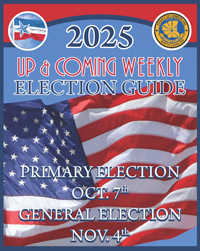The public health of our communities is — and should be — our collective priority during these unprecedented times. As our families, friends and neighbors face the challenges posed by our ever-changing reality, we must also reflect on the role that a healthy natural environment plays in sustaining our lives.
Reliable, affordable and accessible energy resources are critical now that much of our population is home-bound. Clean, viable water is crucial to maintaining our personal hygiene. Proper waste management procedures sustain sanitary homes and communities. And, our natural world is an important source of joy, providing many people with physical and mental respites as we practice social distancing.
But right now, our most necessary asset is one that we cannot even see: our air.
This spring, air quality has been at the forefront of the media more than ever, as researchers have discovered that air pollution is one of many factors in the spread and severity of the novel coronavirus. Conflicting reports about air quality abound. Stunning images reveal crisp, clean skylines in cities that are usually buried in a cloud of smog. Other reports claim that, in some areas, air quality is at its absolute worst. One fact is certain, though: better air means better health.
Clean air is essential for everyone but especially for those with respiratory issues such as asthma and emphysema. On rare occasions when our air is considered to be unhealthy, each breath becomes more of a concern for all. Now that our society faces a virus that adversely and indiscriminately impacts our respiratory health, our air quality is one natural resource that we simply cannot take for granted.
We are typically blessed with clean air in the Sandhills. In fact, our area boasts some of the best air quality in the state of North Carolina. But, we must not become complacent if we want to cultivate that distinction further.
Several organizations are leading the charge for healthier air. We can attribute our air quality successes to the vigilance of agencies such as the Fayetteville Area Metropolitan Planning Organization, Sustainable Sandhills, and the Air Quality Stakeholders. Their initiatives to improve and manage the air quality of our region contribute to our public health and the quality of our lives.
Each resident of the Sandhills is also a key player in the efforts to enhance our air quality. May 4 to May 8 is National Air Quality Awareness Week. You can care for our air by adopting habits that foster healthier air in the Sandhills. Simple steps — such as riding your bicycle instead of driving your car, fueling your vehicle when temperatures are cooler and properly inflating your tires — can have significant impacts. You can also learn about the Air Quality Index. The AQI is a forecast of the air quality in a region, ranging from “good” or “Code Green” to “hazardous” or “Code Maroon.” Most weather reports include the AQI. You can learn more about the Air Quality Index and other issues at airnow.gov or sustainablesandhills.org/airquality.
Our society will undoubtedly learn many valuable lessons from these uncertain days. By using our resources responsibly and protecting the natural assets that are so vital to our lives, we can protect our residents and build healthier, more vibrant, more resilient communities that can withstand any threat — today, tomorrow and forever.

 How to resolve AdBlock issue?
How to resolve AdBlock issue? 









